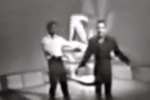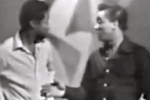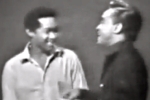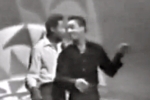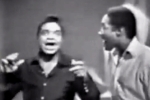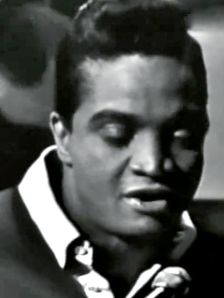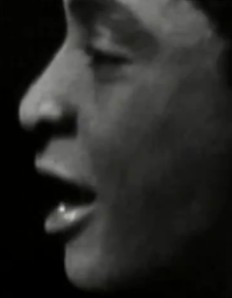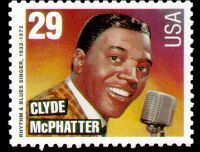Background note: If you want to see photos of Harlean Harris, check here, here and here. There are a number of photos of other young Black models that are at times labeled as Harlean. The stepladder photos and the Jet cover are really her, as she looked a few years after Jackie first met her, when he was eighteen and she was probably sixteen. Harlean’s age is a mystery in itself: note that the stepladder photos are from the same photo session, but Harlean is a different age in the two photos. Jackie had just joined The Dominoes when they met, and Harlean, whom Jackie called “Harris,” was one of the co-presidents of the Billy Ward and His Dominoes Fan Club . . . along with Juanita Jones, who years later shot Jackie twice in the abdomen as he tried to wrest a gun from her hands.
Juanita was not aiming for Jackie. Her intended target was Harlean.
The shooting took place in 1961, outside Jackie’s New York City apartment, where he was bringing Harlean home in the wee hours after what turned out to be the “Valentine’s Day Date From Hell.” Police reports, by the way, listed Juanita as twenty-eight. It’s not unlikely that Harlean was closer to that age than the twenty-three or twenty-four she claimed to be at that time.
Jackie’s estate. When Jackie Wilson collapsed, he was deeply in debt to Brunswick, his record label, for “recoupments” on the many hit recordings he made for them. (Check here for an introduction to how recording contracts work for contemporary artists—and remember that things were much worse from the artist’s standpoint in Jackie’s day.) Jackie also owed a staggering sum in back taxes to the Internal Revenue Service.
Why would anyone fight for control of such an estate, an estate that consisted of no valuables, no bank accounts, no known assets whatever? At the time of his death, there was no reason to assume that much money would come from the piddling royalties that would be owed to the estate on any future sales of Jackie’s recordings, given that Tarnopol claimed Jackie owed Brunswick so much money.
The most obvious reason to fight for control of the estate was, of course, to control access to information about the status and history of Jackie Wilson’s financial affairs.
Jackie’s domestic life. At the time of his collapse in late 1975, Jackie considered Lynn Crochet his wife. According to his major biographer, Tony Douglas, Jackie lived with Lynn in Detroit and ultimately in Georgia, where the couple had purchased land to build a kennel so that dog-loving Jackie could enjoy his retirement from show business as a small businessman, breeding Malenois.

- Jackie Wilson singing a duet with Shirley Ellis
It is noteworthy that Jackie was looking into retirement at age forty-one. Jackie and Lynn had two small children, one born in 1972 and another born in 1975, less than two months prior to Jackie’s collapse.
On the other hand, Jackie and Harlean Harris had been separated at least seven years at the time of his collapse, and they were neither friends nor even friendly throughout those years.
Jackie’s relationship with Harlean Harris had ended acrimoniously after little more than a year of their marriage, which had taken place in 1967. Jackie had left their apartment for good upon finding evidence that convinced him that Harlean was conducting an affair with his manager, Nat Tarnopol, and he never saw Harlean or their son (born in 1964) again after the breakup.
Although a financial agreement had been established by a court (allowing Harris to have Jackie arrested for non-payment of support any time he entered New York City), the final divorce degree was never granted, providing the legal loophole employed to establish Harlean Harris as Jackie’s wife and widow.
In such circumstances, no contemporary American court would recognize Harlean Harris as Jackie’s wife, putting Jackie’s physical well being in the control of an adversary. Why did it
happen back then?
To some degree, race could have been part of the decision-making process or at least a justification for the decision. Historically, it was a time when there were public debates about whether white couples should be permitted to adopt black children, and many Blacks were angered by celebrities of their own race dating or marrying whites. Indeed, many Blacks were angered when any of their race even dated whites. Harlean Harris was black. Lynn Crochet was white.
If there were no assets, what would Harlean Harris achieve by being declared Jackie’s wife? Any child support or alimony owed her would still be owed to her as an ex-wife, so what was her interest in being legally named Jackie’s wife?
One answer would be vanity, grabbing a last chance at the spotlight. Harris had once been a model, a stunningly beautiful young woman. However, by the time of Jackie’s collapse, Harlean Harris’s once-spectacular looks were deteriorating. In a photo taken of her with a celebrity helping to raise money for Jackie’s medical bills, she appears plump and unhealthy. Photos taken at Jackie’s funeral show Harlean fat, frumpy, and looking far older than the number of years she claimed to be.
Another possibility would be that Harlean Harris was thrust into a role she didn’t choose for herself. Perhaps she was made an offer that she could not refuse.
Harris could not afford the legal battles she undertook, so she must have had financial backers. Maybe her family helped out there—a wealthy aunt, or a generous sister . . . or possibly even a solicitous godfather?
Part Three of this series will address Brunswick and Jackie’s notorious manager, Nat Tarnopol.
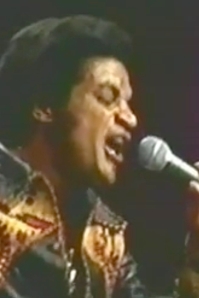 There is a bootleg recording, reputedly from Jackie Wilson’s last complete concert, captured just days before he collapsed. The audio file may be his last recorded spoken words and the last recorded notes he sang.
There is a bootleg recording, reputedly from Jackie Wilson’s last complete concert, captured just days before he collapsed. The audio file may be his last recorded spoken words and the last recorded notes he sang.

